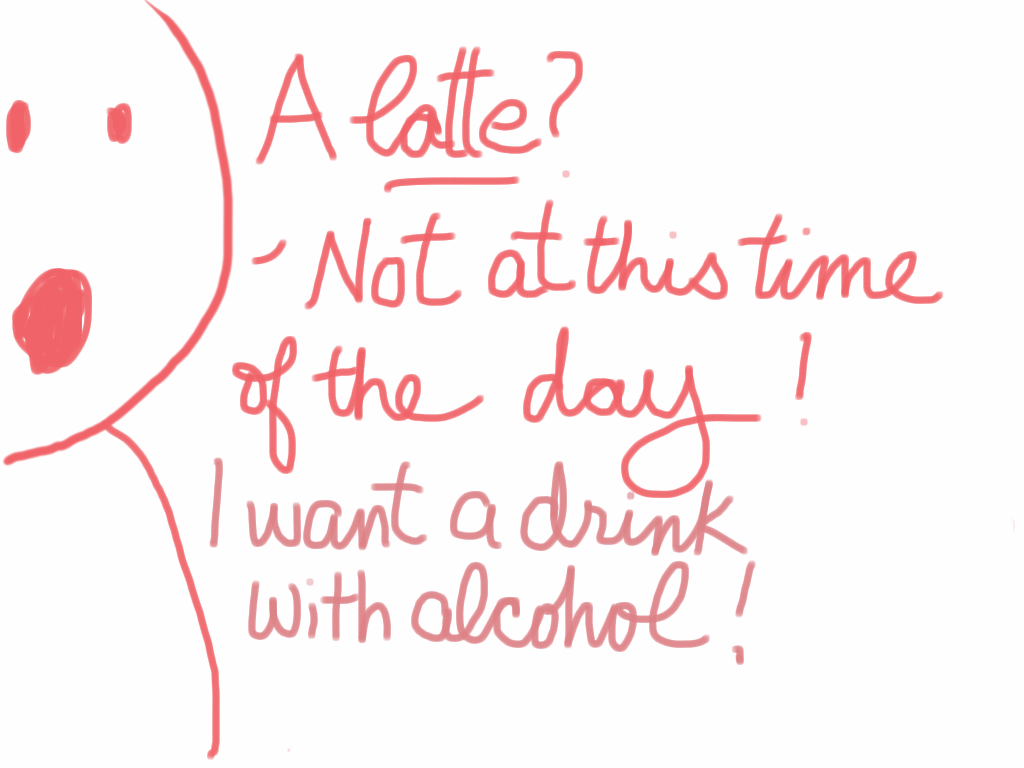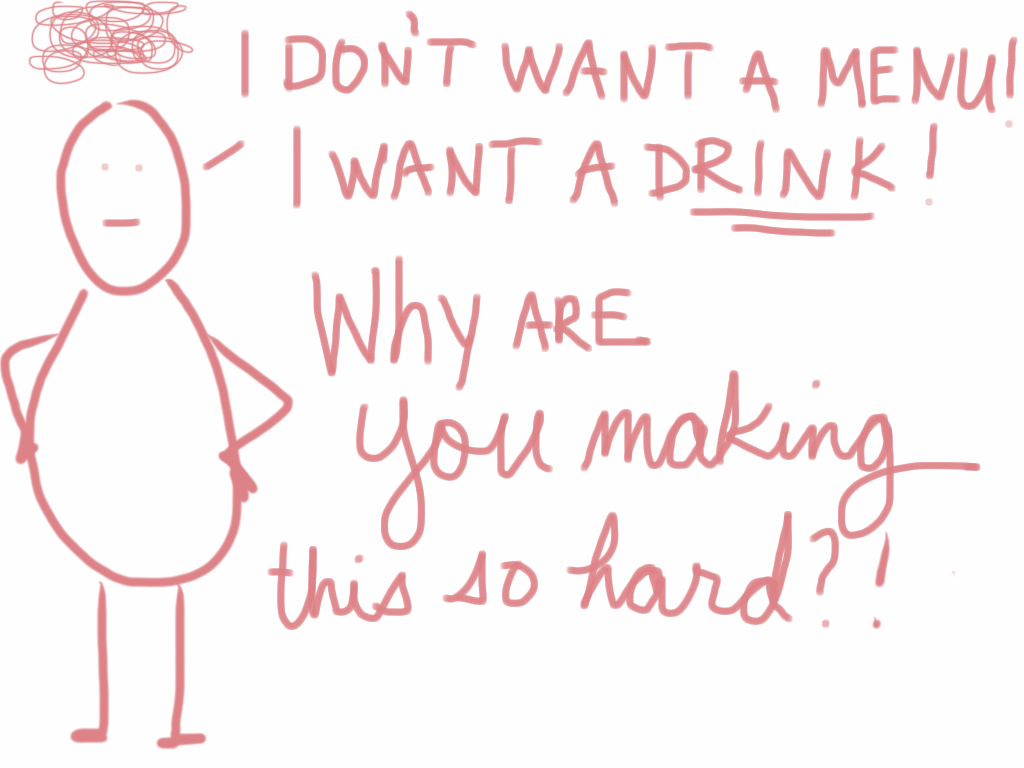One of the main goals of being of service, is to give to the customer what they want.
The problem is, many people in this world aren’t exactly clear on what exactly that is. Customers–people like you and me–get mucked up by all the No’s, the Should’s, and the Can not’s. We have a hard time getting to what we want and need because we don’t really understand what we will allow ourselves to have.








Maintaining great service requires constant upkeep. Restaurant managers and owners must work with themselves and wait staff to stay humble, maintain great stores of knowledge, problem solve, be attentive, and act fast. In order to receive truly exceptional service, it does requires some bit of reciprocity. Customers must be willing to accept great service. They must be willing to communicate and be trusting and open to knowledgeable suggestions.
Every day needy people–nice humans with beautiful families and good lives–get so stuck in their heads they can’t step out of their own way. They brush away the server who approaches their table to greet them, and then moments later become angry when the waiter isn’t there for their order. These are the people who bark at the bartender because they’re angry they don’t understand the terms or names of dishes on the menu.
Maybe it’s hunger, thirst, or an ample dose of anger, fear, and pride that gets in the way of accepting good service. I don’t know. Maybe it’s a varying combination. But every day, customers angrily lash out at the very people offering to help and be of service to them.
Unhappy people fail to accept help and get angry at the people who offer to assist them every day. How dare that server ask me what I usually like? How dare that bartender suggest that fruity cocktail?
Yes, it is the job of the wait staff to be generous, hospitable, and go above and beyond for the customer. The work of wait staff requires a minimized ego and an inflated sense of humility and giving.
But why is it we let anger, fear, or pride get in the way of us getting help? Can we minimize our ego, stay out of our own way, and ask for assistance without lashing out at the helpers? Is this something customers are ready to think about? Are we up for that kind of soul searching?
I look forward to hearing your comments, thoughts, or stories.


I am reminded of a four-top – a woman, her partner and two kids – in a popular steakhouse chain my husband and I visited two years ago. We shared a waitress with this table and had an excellent time with her. She was friendly, engaging and attentive without being overbearing; she was timely with her questions and our order. By the time we had ordered drinks and an appetizer, this four-top was halfway through their meal, complaining the entire time. The waitress was nearly in tears, but soldiering on to make them happy through polite inquiries and revolving door plates, all to no avail. Sadly, as this customer worked herself into a frenzy, she got louder and more unpleasant – nothing would please her, not even when the manager came over to try and assess whatever issue she was having. The manager comped the meal for the entire table, and the woman, the man and the two kids walked out not soon after. The whole restaurant was pleased, as her ranting had disturbed all of us, and most especially the poor waitress. Nonetheless, she smiled and attended to our needs and desires – as if dealing with that four-top had made her more determined to make our experience enjoyable, as if it were her fault they had disturbed us. That waitress got a large tip, a written thank-you and a recommendation to the manager. It was the best experience we had ever had, and continue to have had, at a restaurant.
I have to agree that the customer must be willing to accept good service, just as the waitstaff must be willing to provide it. Even more, I believe many people that go about their everyday lives have become too accustomed to being waited on, as if any person on a waitstaff is below them and should feel privileged to wait on whoever is sitting at the table. Often we as customers forget that waitstaff are people – often as we forget that public servants such as police officers, maintenance crews and utility workers are people with families and desires of their own, who are not out to make our lives more difficult on purpose. I think if we remember that these individuals are people first, their titles second, we may all be able have a better experience.
Really interesting post… I think American’s more than other nations struggle with the “service” dynamic and pride on both ends often makes things go awry.
Who knew you were an illustrator! Very important post Brooke.
The visuals really help to add impact to these tricky situations.
“get so stuck in their heads they can’t step out of their own way.” Oh do I know those feelings. No need to take them out on others though. Thanks for another thoughtful post 🙂
Thought provoking post. I think people are more aggressive today due to economics. People do not have the money that they would like to have and one way to get rid of this frustration is to take it out on service providers. Sadly, waitrons are often the recipients of such aggression.
This post reminds me so much of my husband when we started going out. He wasn’t used to eating in classy restaurants and with people waiting on him. When we go to restaurants we haven’t tried before, he was like a dog with his hackles up, and like your illustration, grew more frustrated with each question the waiters asked him. I worked in the restaurant industry too and it took a lot of explaining, reasoning, and love to make him realize that he can get better service if he cooperated with them. Now he understands why he should try to be patient and help the other person do a good job too 🙂